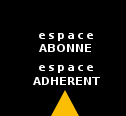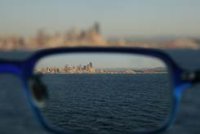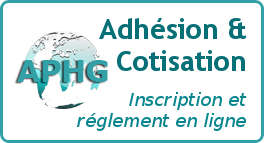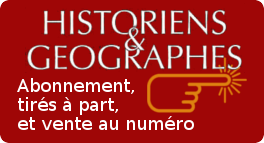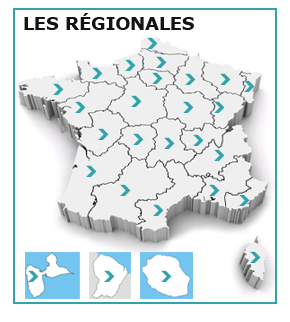Ce travail sera mis en ligne sur le site dédié Historiana. Il s’agit de se placer dans la perspective de compréhension de la formation d’une citoyenneté européenne à la lumière des enjeux du présent pour l’UE. La langue de travail est l’anglais. La première rencontre de travail aura lieu à York (RU) les 15 et 17 janvier 2016.
Les candidatures sont à envoyer à judith@euroclio.eu avant le 11 décembre 2015.
Site web Euroclio : http://www.euroclio.eu/new/ et historiana : http://historiana.eu/
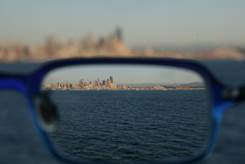
Call for Development Team Members for New Project on Teaching EU through contemporary issues
EUROCLIO has acquired a new project within the Historiana programme : “Decisions and Dilemmas : Exploring European Union history through the lens of contemporary issues”. The project will run for 2 years (from 1 September 2015 until 31 August 2017) and will be implemented by EUROCLIO. The project will result in educational materials on 5 key issues. We are looking for 1 or 2 history educators and 2 or 3 researchers to join the development team that will be responsible for the development and testing of the learning materials. The deadline for applications is 11 December 2015.
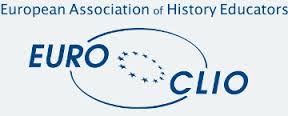
The project
The project is strongly linked to and in part a continuation of the established EUROCLIO project Decisions and Dilemmas : Learning about the EU from a historical perspective. This has focused upon the origins of the EU from the perspective of ordinary citizens in the years just after WW2, the long search for stability in Europe starting with the Peace of Westphalia in 1648 and how the EU has had to adapt and evolve in the context of its time. In this second phase we will build on this work.
For us, as an organisation promoting history education, it is important that our approach should use the past to understand the present, i.e. to understand the dilemmas and problems facing the EU today and how it is trying to resolve them. That means helping students to understand that the EU is not simply an intergovernmental organisation like NATO or the UN, but that it is also a dynamic political system trying to mediate between the needs of its member states and electorates, while at the same time adapting and responding to changes in the external world. We want students to understand the bigger picture.
The activities to be developed
Each activity needs to contain material to illustrate the European Union in the global world, its institutions in action and EU values. The activities will in part be living the values. They will show that implementing the values in a common way has been / is challenging, and why. The activities will take contemporary dilemmas and draw up their historical context in order to inform students’ understanding of why we are where we are and why different parties act the way they do.
The key issues that we will look at are :
1.‘Economic imbalances in Europe’ and the regional divisions (centre-periphery) within the EU. Thoughts for content include : does the north now think they have one model that fits all for the whole EU – manufacturing and opening up markets ? Is there far less concern about the implications for people if we have more open trading relationships ?
2. Energy dependency – the issue is dependence and the implications of dependency and the security issues relating to this. How concerned should Europe be about energy dependence ?
3. Trade in a global context – the EU as a trade power. This issue includes the push for universal values, which are actually contested, the penetration of the outer world and the implications. It looks at the global context as opposed to regionalism. How does the EU exercise its trading power ? Does the EU understand the implications of this power ?
4. Europe as a potential global power – this issue does not look at the trade and economic aspect, but at conflict, conflict resolution, possibly international development aid and human rights. The European Community started off as a power concerned with its eastern border, and moves to worrying about conflict on its borders and to asserting itself over human rights. Where does the EU’s political power come from ? What are the pull and push factors for a country wanting to cooperate EU-wide or act alone ?
5. ‘Opening Europe’s borders for people’ (terrorism) and border controls in Schengen world – are our borders now under threat ? There are some powerful images including the refugee crisis after the Second World War and now, comparisons between the Berlin wall and the current practise of building a wall in Hungary. Using the discipline of history we will look at the evidence base. Learning outcomes might include that the EU cannot solve all problems, the issue is complex, and there is a shared responsibility on each level.
The offer :
The costs for participation to the meetings (including travel, accommodation and subsistence) will be fully covered by the project. This is a great chance to work in an international team, for a worthwhile and interesting project, which will give participants experience in research and/or pedagogical issues, and lead to your work being published on Historiana under Commons Licence. There will be cultural aspects to the programme during each team meeting. Finally, every team member will receive a fee of 500 euros for their work.
The expectations :
As a development team member you are expected to :
- Work in pairs on the issues (1 educator, 1 researcher)
- Research content and design content material and a learning activity for 2 of the 5 project areas ;
- Take part in face-to-face and online working meetings ;
- Research and work in between meetings to prepare material and activities for discussion, trial and further development at meetings. Then to take on follow-up work after meetings ;
- Piloting and peer reviewing of the material with colleagues and at EUROCLIO events ;
- Provide training in the completed material during the final training ;
- Be available for the first team meeting from 15-17 January 2016 in York, United Kingdom.
Contact / Applications : To apply, please send your CV, Letter of Motivation and Letter of Support from your school, institute or association to judith@euroclio.eu before 11 December 2015.

© EUROCLIO - European Association of History Educators.
© Caroline Morel pour la Commision Europe de l’APHG et les services de la Rédaction - Tous droits réservés. 06/12/2015.

